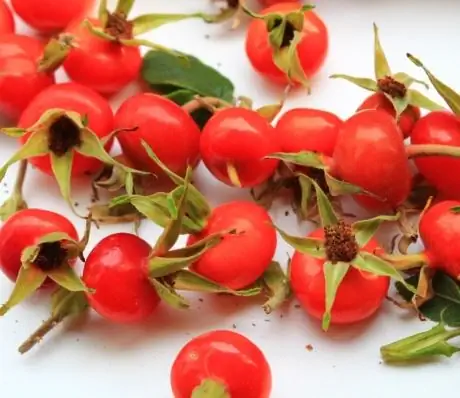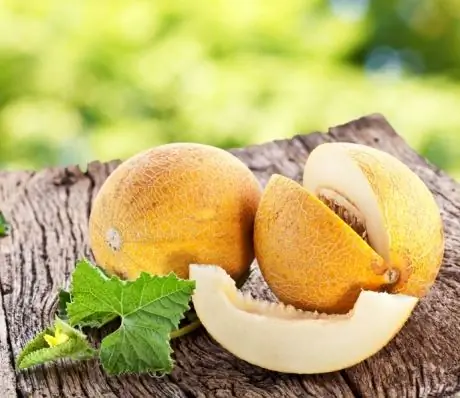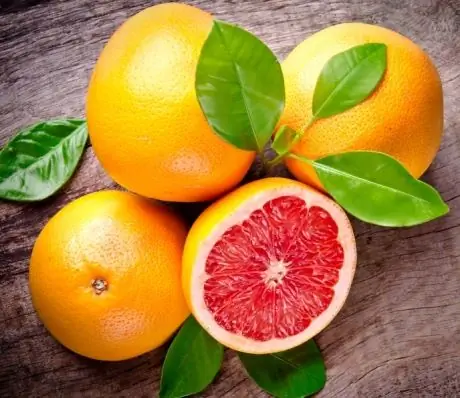- Author Rachel Wainwright wainwright@abchealthonline.com.
- Public 2023-12-15 07:39.
- Last modified 2025-11-02 20:14.
Gryzhnik
Instructions for use:
- 1. Chemical composition
- 2. Useful properties
- 3. Indications for use
- 4. Contraindications
- 5. Home remedies

Hernia is a medicinal plant that has anti-inflammatory, diuretic, choleretic, astringent and analgesic effects.
Chemical composition
Gryzhnik (cold grass, broom, dog soap, hernia, fringed grass, keel grass, kilnik, field soap, scorn, empty bread, makeup, gladun) is a genus of herbaceous plants of the Clove family.
The herb hernia is fragrant (polygamous), smooth (naked) and hairy (hairy) has medicinal properties. The chemical composition of these plants is almost identical, so their healing properties do not differ.
The herb contains:
- herniariesaponin and the saponin-like glycoside herniarin, which are split into the following biologically active substances: sugar (glucose, galactose and rhamnose), herniaric acid and oxpisapogenin (has a pronounced hemolytic effect);
- essential oil;
- alkaloid paronyhin;
- flavonoids;
- umbelliferone methyl ether;
- carotene;
- vitamin C;
- coumarin.
Beneficial features
The plant is widely used in folk medicine (internally in the form of freshly squeezed juice and decoctions / infusions and externally in the form of poultices).
Hernia infusions and decoctions have a pleasant aroma and a somewhat astringent taste with a slimy feeling. They are drunk for cystitis, acute pains and spasms in the bladder, as a prophylactic agent for urolithiasis, as a diuretic for high blood pressure and edema; less often - with bronchitis and other inflammatory processes of the upper respiratory tract.
Hernia tea can be drunk to prevent thrombosis.
With scrofula, diathesis and acne, it is recommended to wash with hernia broths. In addition, the infusion is considered a good wound-healing agent. In the treatment of hernias, joint inflammation, arthritis, gout, poultices from steamed grass are used.
Freshly squeezed juice is used externally for psoriasis to treat plaque. It can be drunk for the same purposes as a decoction of the plant. It is not recommended to store the juice, as it very quickly loses its beneficial properties.
Hernia is not recognized as a pharmacopoeial plant in official Russian medicine, but is registered in the state register of medicines as a homeopathic drug. Also, the plant is part of some dietary supplements.
In official Western medicine, the hernia is used more widely. In particular, it is part of the Phytolysin drug.
In the German Pharmacopoeia, herb in the form of a decoction or infusion is used in the treatment of chronic cystitis and various diseases of the liver and kidneys, as well as syphilis.
Indications for use
Hernia is used as an anti-inflammatory, diuretic, choleretic, astringent and pain reliever.
The plant is indicated for the treatment of the following diseases:
- gout;
- vitiligo;
- cystitis;
- rheumatism;
- dropsy;
- acute respiratory diseases;
- tuberculosis;
- kidney and urolithiasis;
- arthritis;
- lichen;
- catarrh of the stomach;
- gastritis.
Contraindications
- pregnancy and the period of breastfeeding;
- individual intolerance to biologically active substances of the plant.
Care must be taken when treating kidney stones.
Given that the hernia is poisonous, it should be used strictly under medical supervision in compliance with the exact dosage.
Home remedies for hernia
- infusion: 1 teaspoon of crushed raw materials per 200 ml of boiling water; insist until it cools; method of application: 3-4 times a day before meals, 1 tablespoon;
- broth: 1 tablespoon of crushed raw materials per 200 ml of boiling water; stand for 5 minutes in a water bath; method of application: 5 times a day, 1 tablespoon.
Information about the drug is generalized, provided for informational purposes only and does not replace the official instructions. Self-medication is hazardous to health!






